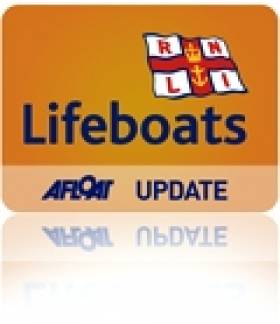Displaying items by tag: Mersey Class
Clifden RNLI To Trial New All-Weather Lifeboat
#RNLI - The RNLI has announced that Clifden lifeboat station in Co Galway is to receive an all-weather class lifeboat for a trial period of 12 months to operate in conjunction with the existing inshore lifeboat service.
The decision, which will see the volunteer crew take delivery of a carriage-launched Mersey class lifeboat, was made this week when the charity’s trustees accepted the recommendation of its operations committee. It follows an in-depth review of lifeboat cover in the area.
The RNLI carries out a five-yearly review of lifeboat stations, looking at the incidents they launch to and the changing pattern of marine activities to ensure the existing and future lifeboat coverage is appropriate.
All-weather lifeboats can be operated safely in all weather conditions while inshore lifeboats usually operate closer to shore, in shallower water, close to cliffs, among rocks or even in caves.
Introduced as the RNLI’s first fast-carriage lifeboat, the Mersey class has a top speed of 17 knots. Designed to operate from a carriage, slipway or lie afloat, this class of lifeboat is also capable of being self-righted in challenging conditions.
The Mersey - which can carry a lifeboat crew of six - also carries an X boat, a small unpowered and manually launched inflatable daughter boat to allow the crew to access areas where the lifeboat cannot reach.
Last year, Clifden RNLI launched eight times bringing seven people to safety. Of those launches, two services were in the dark. In all, some 82 service hours were spent at sea.
A lifeboat station was established in Clifden in early 1988 and the station currently operates two inshore lifeboats.
Clifden RNLI lifeboat operations manager John Brittain said the crew were "delighted" at the decision to trial the new lifeboat in the Galway town.
"The new boat will allow us to provide lifesaving cover in all weathers up to 100 miles off the Connemara coast," he said. |This is a significant investment by the RNLI and we are excited to be trialling a Mersey class lifeboat."
RNLI divisional operations manager Owen Medland added: "Our charity’s priority is to save lives at sea and by conducting regular reviews of lifeboat cover around our coastline, we can ensure we provide the best possible search and rescue service.
"After careful scrutiny, the RNLI feels that an all-weather lifeboat may be suited to the service launches that Clifden volunteers get tasked to. The co-location of the new lifeboat for a trial period of 12 months will allow us to assess the long-term value for this type of lifeboat while ensuring that any change at Clifden means the right type, balance and capability of the lifeboats are operating in this location to respond to emergencies."
The timescale for the arrival of the all-weather lifeboat has yet to be confirmed but will coincide with the training of the volunteer lifeboat crew to meet the demands of the new vessel.
























































